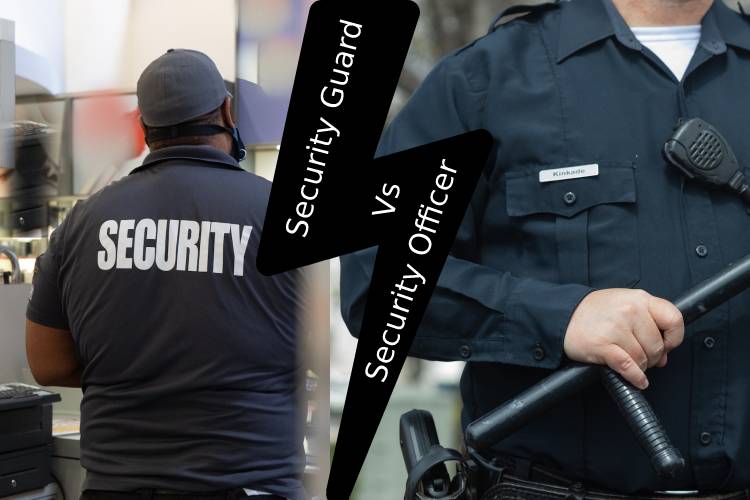
- September 5, 2022
- |Blog, security guard
- | 0
- 227
Although both security guards and security officers are responsible to provide safety, they are different from each other in many ways. Overall, roles and responsibilities remain the same for both designations. However, it is the hierarchy and authority of job roles that make the difference. Let us first understand who is a security guard and who is a security officer.
Who is a security guard?
A security guard is an officer with a lesser rank who typically works under a security officer. For a smooth operation, they collaborate with the officers and operate under their supervision. Even though it fully depends on the employing organization, they are typically not needed to go through rigorous training.
Who is a security officer?
A unit of security personnel is managed by a security officer. They frequently provide directives and direct the guards’ activities. A security officer could also be charged with mentoring security guards because they typically have more knowledge and experience.
Differences between a security guard and a security officer
Posting
A security officer is not stationed at a post such as the entrance gate of a corporate office to perform basic inspections. A group of security guards under the supervision of a security officer generally performs these tasks.
Reporting
A security guard should report to a security officer. Since security officers are ranked higher in the organizational hierarchy, security officers are not entitled to report to a security guard.
Training
Security officers must undertake rigorous training to ensure that each department of the security system is working fine. A security guard is expected to perform tasks related to his designation only and thus needs no extensive training. For example, a security guard at the entrance of a facility in charge of maintaining the log book needs no initiation to other security departments. However, security officers must take the training to have everything in the security system at their fingertips.
Operations
Security officers are required to move from one spot to another spot and supervise the security system. A security guard is stationed at one place (if not mobile guards). For example, a security guard who is in charge of frisking needs to be stationed in one particular place. Security officers must roam around the facility to inspect whether everything is fine with the security system. This could range from checking the functionalities of CCTV cameras to issues like unauthorized entrance or tailgating.
